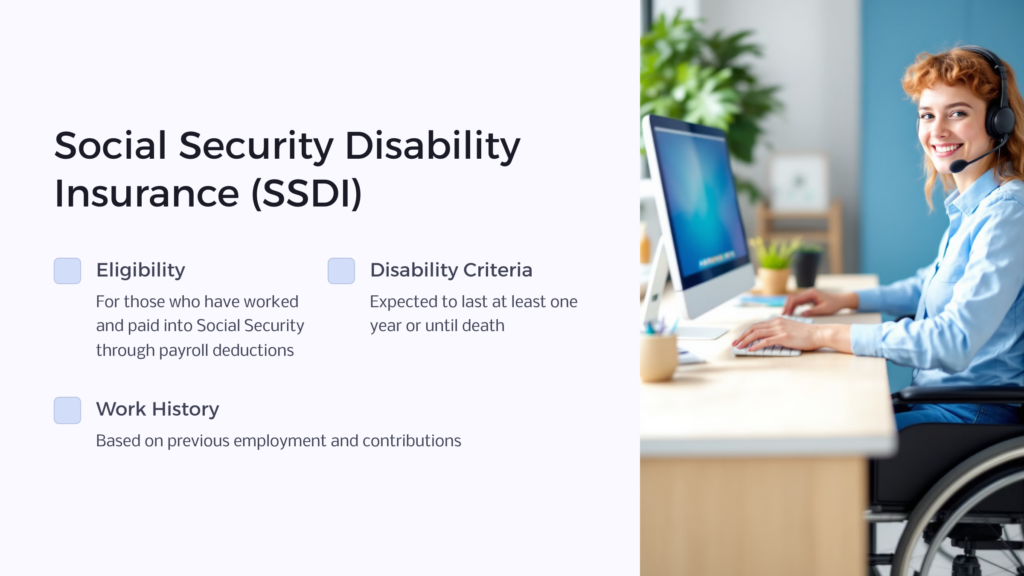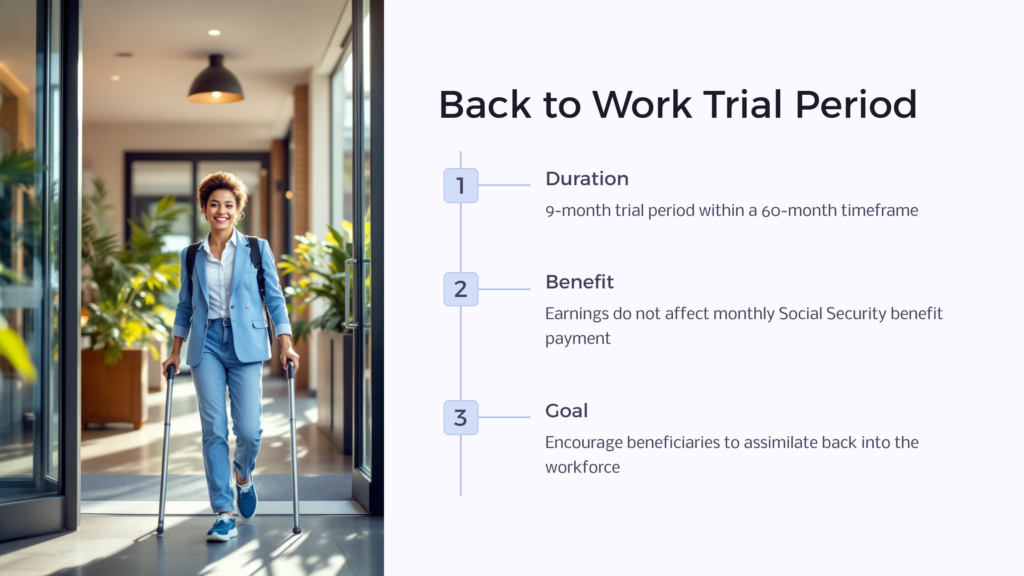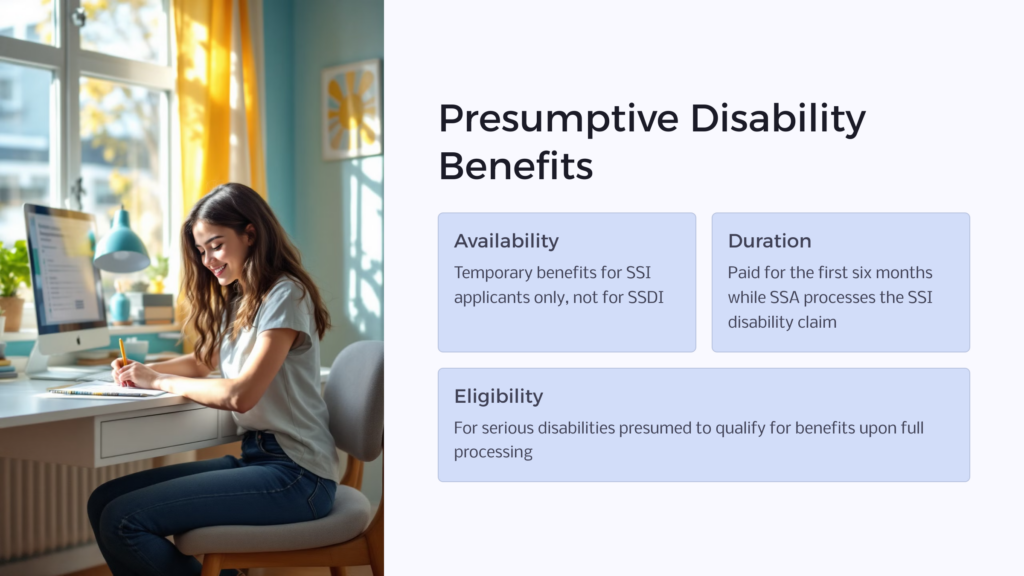Social Security provides two benefit programs for people who are physically or mentally disabled and seeking financial assistance.

Social Security Disability Insurance (SSDI) pays benefits to those who have worked and paid into Social Security through payroll deductions, and who have a disability that is expected to last at least one year or until they die.
Supplemental Security Income (SSI) helps people who are disabled but do not qualify for SSDI benefits, either because they have not worked for a long time or they are students who have not yet entered the workforce. It is based completely on need and is generally for people with very low incomes who are 65 or older.
Both are designed to provide long-term assistance and as such, they do not normally offer temporary benefits to claimants. However, there are some exceptions worth noting.

When possible, one of the goals of Social Security is to get people back into the workforce if their disabling condition improves. To facilitate this, Social Security encourages claimants to take part in a 9-month “back to work” trial period during a 60-month timeframe. During this trial period, disability beneficiaries attempt to assimilate back into the work force and their earnings do not affect their monthly Social Security benefit payment.
In this sense, benefit payments are temporary because they lead to a recipient returning to work if at all possible. At the end of the trial period, if the beneficiary is still working and earning an amount above SSA’s substantial gainful activity amount, then benefit payments may be suspended at that time. The substantial gainful activity amount is a threshold amount set by Social Security that is the delineating line between whether a person can get disability payments or not.
At any time during the following 36 months, if the claimant has to stop working again due to their disability, then their benefit payment may be reinstated. There is also an extended period that includes up to five years following the month your disability was terminated because you were back to work. You may be able to qualify for an expedited reinstatement of your benefits without having to file a new disability application, which can shave months off of your approval process. Benefits received as a result of an expedited reinstatement only take place for six months while Social Security is able to verify that you are still disabled according to their standards.
Social Security does make temporary benefits available for some disabilities in conjunction with the SSI program. These benefits are called presumptive disability benefits and they are only available for SSI applicants, but not SSDI applicants.

Presumptive disability benefits are temporarily paid for the first six months that SSA processes an SSI disability claim. They are paid when SSA determines that a person has such a serious disability that it is presumed that they will receive disability benefits when their SSI claim is fully processed. The following conditions are eligible for presumptive disability payments as part of an SSI claim:
- Total blindness
- Total deafness
- Down syndrome
- Amputation of two limbs or one leg at the hip
- AIDS or symptomatic HIV infection
- Spinal cord injury without the ability to walk without a walker or similar device
- A stroke that took place more than three months prior that has resulted in difficulty walking or using a hand or an arm
- Severe mental retardation
- End stage renal disease requiring chronic dialysis
- ALS (Lou Gehrig’s disease)
- Muscular dystrophy
- Cerebral palsy
- Muscular atrophy that has created difficulty walking or speaking
- Low birth weight
- Confinement to a bed and required use of assistance such as with a walker, crutches, or wheelchair due to a longstanding condition
- A terminal illness with six months or less to live
You can apply for presumptive disability benefits when you apply for SSI benefits. Review is quick, sometimes in a matter of days, and may only require a confirmation from a reliable medical source such as your doctor or other qualified medical personnel. In some cases, Disability Determination Services can also make a presumptive disability determination when they are asked to review a case file.
 Benefits.com Advisors
Benefits.com Advisors
With expertise spanning local, state, and federal benefit programs, our team is dedicated to guiding individuals towards the perfect program tailored to their unique circumstances.
Rise to the top with Peak Benefits!
Join our Peak Benefits Newsletter for the latest news, resources, and offers on all things government benefits.



















